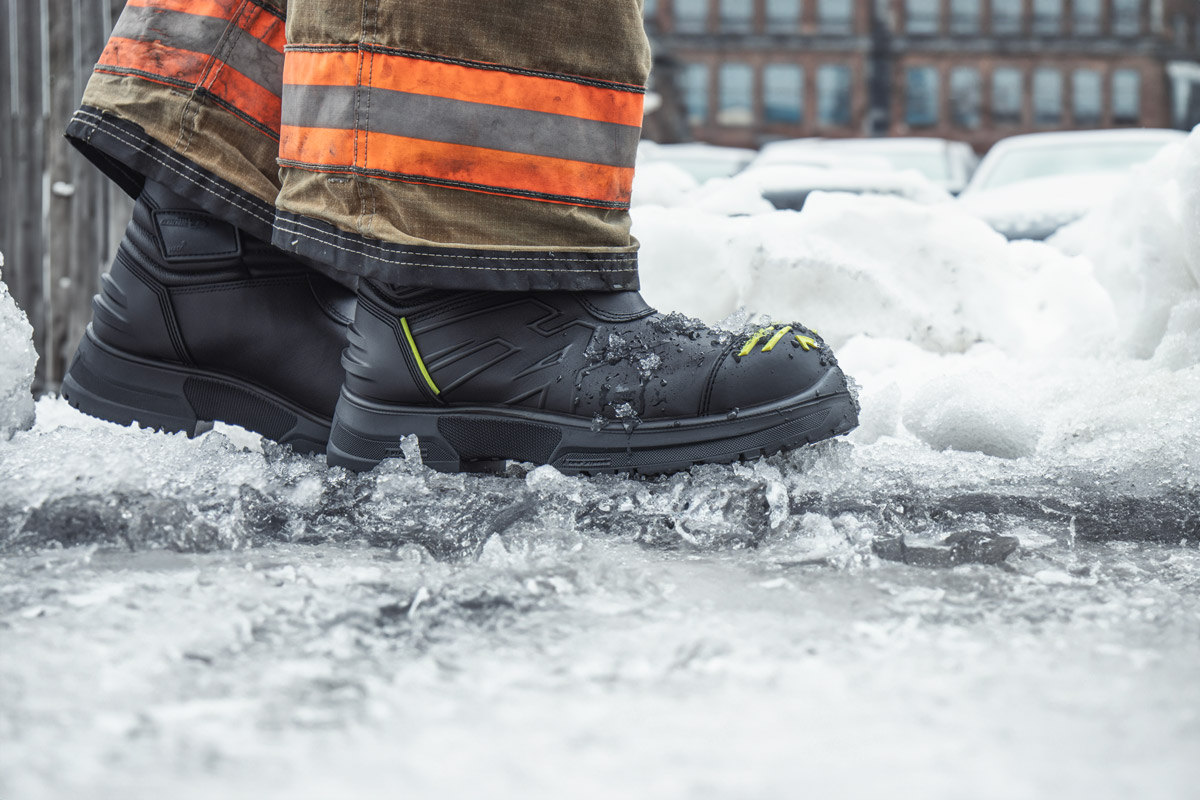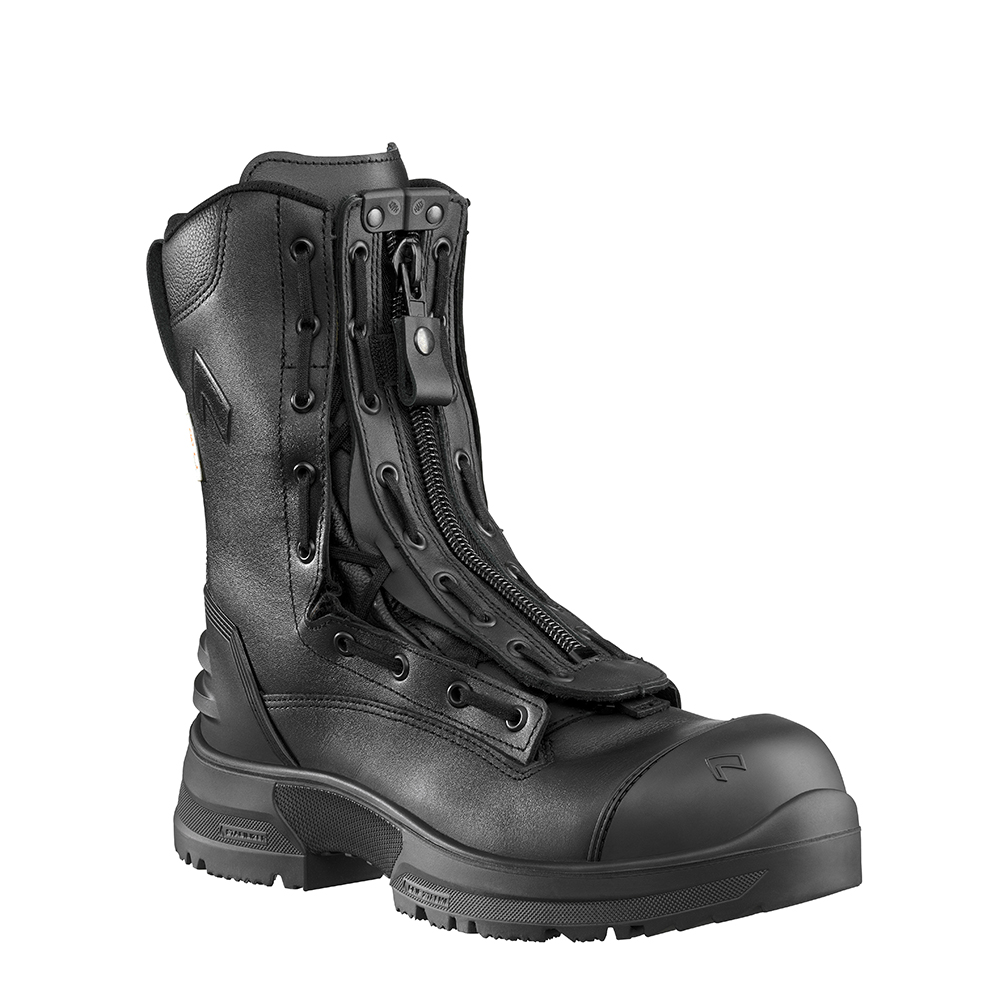HAIX Grip Xtreme: Winter Weather Has Met Its Match
Despite one of the warmest summers on record, winter will still arrive for all of us. Emergency response call outs do not stop for any weather—rain or shine, sun, or snow. Safety is important on every level for firefighters and first responders. When it comes to inclement winter weather, the rubber will quite literally hit the road, and good boot tread may be the only difference between an injury and returning to the station safely.
Grip Xtreme
Introducing the Fire Eagle ® Air Grip Xtreme and Airpower ® XR1 Pro Grip Xtreme. Look at the bottom of any good winter boot and you will notice different tread patterns depending on the make, model, and price point. Tread depth is also a key indicator of the recommended use for that boot. There are two main factors in boot tread design when improving traction: pattern and grip. We reworked the soles of two of our most popular EMS and Structural Fire boots to incorporate these two crucial components and created a version especially for the treacherous winter months.
Tread Pattern
Two terms to know when discussing tread patterns for the outsole of a boot are lugs and channels. Lugs are the raised elements found on the bottom of the boot, or outsole. Lugs can vary in depth, shape and spacing, and provide varying degrees of traction for different surfaces. While larger (deeper) lugs work well for terrain that is muddy or contains loose dirt and debris, a more shallow, smaller tread pattern works well for smoother, more slippery conditions. In addition to lugs, tread patterns are also likely to include channels. Channels function much like you would expect—shallow grooves running along the bottom and out to the sides of the outsole help shed water from underfoot. This prevents a hydroplaning effect when you take a step on a wet surface. A smaller tread pattern with lots of shallow lugs also provides the wearer with more awareness of what is underfoot; helpful when navigating uneven terrain in slippery conditions.
Grip Elements
Traction of the outsole of a boot is also measured by grip. While tread pattern provides the wearer with better traction moving forward, grip allows the wearer to maintain secure footing as you move. Two essential elements of grip are outsole composition and surfacing.
Experts agree that the most effective non-slip materials for the outsole is rubber, be it Polyurethane rubber compounds or EVA (Ethylene-Vinyl Acetate) rubber compounds. We understand the balance between soft rubber and harder rubber in outsole construction. The softer and rougher the rubber, the better the slip resistance. However, harder rubber is more durable, and is beneficial for shedding water and helping the wearer maintain stability. Rubber also creates friction, utilizing those shallow tread patterns to increase grip.
In slippery conditions, friction is your friend, and rougher surfacing on the outsole rubber will increase that friendly friction. Normal wear and tear have been known to increase friction and grip due to creating micro-unevenness on the otherwise smooth rubber. We have taken that a step further by imbedding gripping elements directly into the softer rubber located on the two most common strike points on the boot outsole—the ball of the foot and the heel. By combining softer rubber with gripping elements and cone-shaped channels that wick water away from the primary pressure points of a foot strike, we created an ideal balance of all the elements of a quality non-slip boot.
The slip resistance on wet and dry ice just took a step up. The Airpower® XR1 Pro Grip Xtreme and Fire Eagle® Air Grip Xtreme boots are a complimentary addition to our boot lineup, especially for first responders that encounter ice, snow and other slippery surfaces working in cold climates. HAIX® has made these two legendary boots even better. With HAIX® Grip Xtreme, you can be ready no matter the weather!









